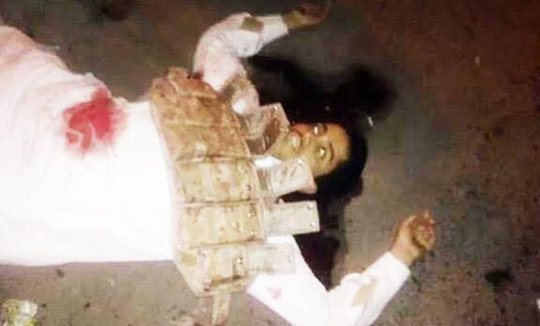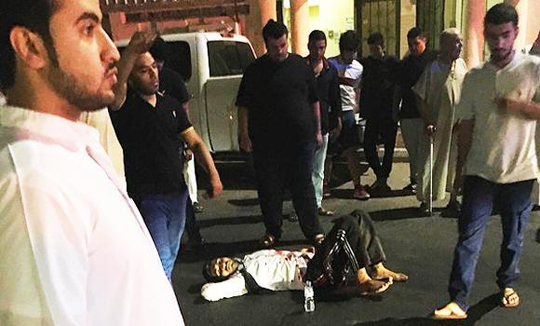Jeddah, Oct 17: A gunman shot dead five people at a Shiite gathering in eastern Saudi Arabia before police gunned him down, the interior ministry said.
A group claiming affiliation with the so-called Islamic State Sunni extremists said it carried out the attack, the latest in a series of bombings and shootings linked to the group in Saudi Arabia over the past year.
The murders, in the Qatif area of Eastern Province, came two days after the start of commemorations of Ashura, one of the holiest occasions for the Shiite faith, a minority in Sunni-dominated Saudi Arabia.
"As result of his shooting, five citizens... were killed, including a woman. Nine others were wounded," an interior ministry spokesman said in a statement.
He said that at about 7:00 pm (2130 IST) yesterday a suspect with an automatic weapon "started to shoot randomly" at Al-Haidaria hussainiya in the Saihat area of Qatif city. A hussainiya is a Shiite hall used for commemorations.
Police intervened and opened fire, killing the suspect, the spokesman said without giving details about the attacker. "The situation is still under investigation," he said.
State television earlier reported that the gunman was 20 years old. A group calling itself Islamic State-Bahrain State said in a communique that one of its "soldiers", Shughaa al-Dosari, "attacked a Shiite infidel temple with an automatic weapon" in Saihat.
During Ashura last year, gunmen killed seven Shiite worshippers, including children, in the eastern town of Al-Dalwa. The interior ministry said that unprecedented incident had links to IS.
A witness to yesterday's attack, Ali al-Bahrani, said that "a gunman began randomly shooting at people attending a sermon." He said that a woman was killed.
Hussein al-Nemr, a local resident, said the shooting was one of three incidents on yesterday evening.








.jpg)
.jpg)
Comments
Add new comment